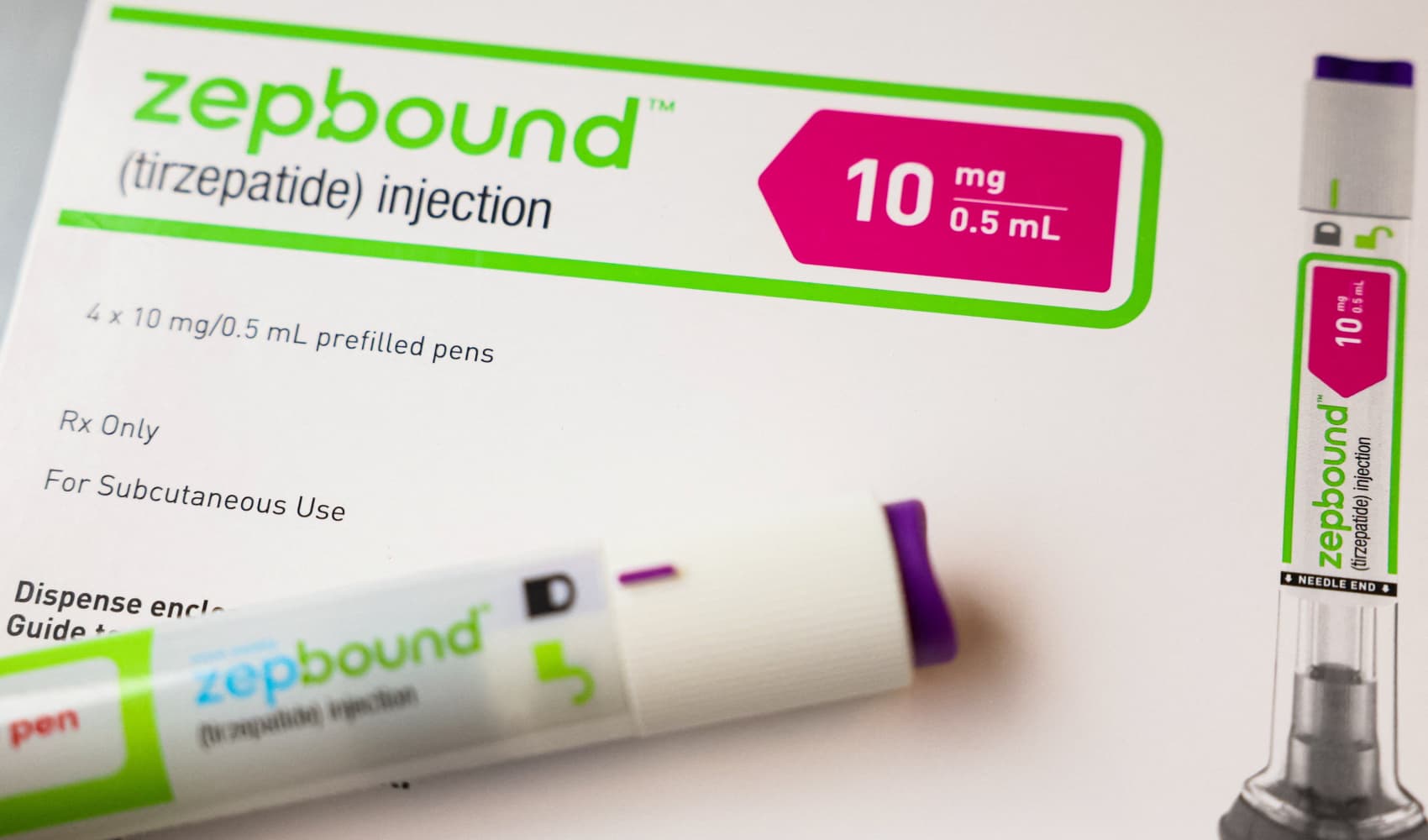Eli Lilly Sues: Is Your Telehealth Zepbound Safe?
Eli Lilly Strikes Back: Lawsuits Target Telehealth Zepbound Copycats
The Weight Loss Wars Heat Up: Eli Lilly's Legal Offensive
The battle for weight loss dominance just took a dramatic turn! Eli Lilly, a pharmaceutical powerhouse, is taking legal action against four telehealth companies. Why? Because these companies are allegedly selling compounded versions of their blockbuster drugs, Zepbound and Mounjaro. Think of it as a heavyweight boxing match, with Lilly throwing the first punch. This move underscores the fierce competition in the burgeoning weight loss medication market.
Understanding the Players: Lilly vs. Telehealth Upstarts
Let's break down who's who. On one side, you have Eli Lilly, a well-established pharmaceutical giant with years of research and development behind them. On the other, you have telehealth companies like Mochi Health, Fella Health, Willow Health, and Henry Meds. These companies offer convenient access to healthcare services, including weight loss treatments, through online platforms. The question is: are they playing by the rules?
- Mochi Health: A telehealth platform focusing on weight management.
- Fella Health: Another telehealth provider offering weight loss programs for men.
- Willow Health: Providing a range of telehealth services, including weight loss solutions.
- Henry Meds: Offering compounded medications, including GLP-1 receptor agonists.
The Heart of the Matter: What are Compounded Drugs?
So, what exactly are compounded drugs? Think of it like this: if a brand-name medication is a perfectly baked cake from a famous bakery, a compounded drug is a homemade version. Compounding involves a pharmacist combining, mixing, or altering ingredients to create a medication tailored to an individual patient's needs. While compounding can be beneficial in certain situations, it also raises concerns about safety and efficacy.
Why is Lilly Suing? Deception and Doubt, According to Lilly
Lilly isn't happy, and they're making it clear. Their lawsuit accuses the telehealth companies of misleading consumers and pushing them toward "untested, unapproved drugs." Imagine buying a car, only to find out it's missing crucial safety features. That's the kind of concern Lilly is raising. They argue that these compounded versions of tirzepatide haven't undergone the rigorous testing and approval process that Zepbound and Mounjaro have.
GLP-1s: The Magic Ingredient in the Spotlight
At the center of this legal battle is tirzepatide, the active ingredient in both Zepbound and Mounjaro. Tirzepatide belongs to a class of drugs called GLP-1 receptor agonists. These drugs mimic a natural hormone in your body, helping to regulate blood sugar and appetite. They've become incredibly popular for both diabetes management and weight loss.
How GLP-1s Work Their Magic
GLP-1s work in a few key ways:
- Stimulating Insulin Release: Helping to lower blood sugar levels after meals.
- Suppressing Appetite: Making you feel fuller for longer.
- Slowing Gastric Emptying: Reducing the speed at which food leaves your stomach.
These combined effects can lead to significant weight loss and improved blood sugar control.
The Shortage Factor: Fueling the Compounding Boom
Why are these telehealth companies even selling compounded versions of Zepbound and Mounjaro in the first place? The answer lies in shortages. Due to overwhelming demand, there have been periods when Zepbound and Wegovy (another popular GLP-1 medication) have been difficult to find. This scarcity has created an opportunity for compounding pharmacies to step in and fill the void.
The Consumer's Perspective: Convenience vs. Cost
From a consumer's point of view, compounded GLP-1s can seem appealing. They often offer a more affordable alternative to brand-name medications. Plus, telehealth platforms provide the convenience of online consultations and prescription refills. But is the lower price worth the potential risks?
Safety Concerns: The Risks of Untested Drugs
This is where the red flags start waving. Because compounded drugs aren't subject to the same rigorous FDA approval process as brand-name medications, there's less certainty about their safety and efficacy. Are you really getting what you're paying for? Are there any hidden dangers?
Potential Risks of Compounded GLP-1s
Some potential risks associated with compounded GLP-1s include:
- Inconsistent Potency: The amount of active ingredient may vary from batch to batch.
- Unknown Impurities: Compounding pharmacies may use different ingredients or processes, leading to potential contamination.
- Lack of Efficacy: The compounded drug may not be as effective as the brand-name version.
The FDA's Stance: A Gray Area of Regulation
The FDA plays a role in regulating compounding pharmacies, but it's a complex landscape. The agency generally allows compounding when there's a legitimate need, such as when a patient is allergic to an ingredient in a commercially available drug. However, the FDA has expressed concerns about the large-scale compounding of drugs that are essentially copies of approved medications.
Lilly's Strategy: Protecting Their Investment and Reputation
For Eli Lilly, this lawsuit isn't just about protecting their market share. It's also about safeguarding their reputation and ensuring patient safety. They've invested heavily in developing and testing Zepbound and Mounjaro, and they want to ensure that consumers are getting safe and effective treatment.
The Broader Implications: The Future of Weight Loss Drugs
This legal battle could have significant implications for the future of weight loss drugs. If Lilly succeeds in shutting down these telehealth companies, it could send a message to other compounding pharmacies and telehealth providers. It could also limit access to potentially more affordable weight loss treatments.
The Court of Public Opinion: Who Will Win?
Beyond the courtroom, the court of public opinion will also play a role in shaping the outcome of this case. Consumers will need to weigh the convenience and cost of compounded drugs against the potential risks. Are they willing to take a chance on an "untested, unapproved drug" just to save some money?
The Long-Term Effects: Will This Curb Copycats?
Whether this lawsuit effectively curbs the rise of compounded GLP-1s remains to be seen. The demand for these drugs is unlikely to disappear anytime soon, and as long as shortages persist, there will be an incentive for compounding pharmacies to offer alternatives.
Conclusion: Navigating the Complex World of Weight Loss Medications
Eli Lilly's lawsuit against these telehealth companies highlights the complex issues surrounding compounded medications, particularly in the booming weight loss drug market. The key takeaways are:
- Lilly is fiercely protecting its investments in Zepbound and Mounjaro.
- Compounded drugs offer a potentially cheaper alternative but come with safety concerns.
- Consumers need to be aware of the risks and benefits before making a decision.
- The outcome of this lawsuit could have a significant impact on the future of weight loss treatments.
Ultimately, informed decision-making and open communication with healthcare providers are crucial for navigating this complex landscape. Always prioritize your health and safety when considering any medication, whether it's brand-name or compounded.
Frequently Asked Questions (FAQs)
- What exactly is tirzepatide, and why is it so popular?
Tirzepatide is the active ingredient in both Zepbound and Mounjaro. It's a GLP-1 receptor agonist that helps regulate blood sugar and appetite, leading to weight loss and improved blood sugar control.
- Are compounded drugs always unsafe?
Not necessarily. Compounded drugs can be beneficial in certain situations, such as when a patient needs a medication in a different dosage or is allergic to an ingredient in a commercially available drug. However, they carry more risk because they are not subject to the same FDA approval process.
- How can I tell if a telehealth company is selling safe and legitimate medications?
Do your research! Check if the company is licensed and accredited. Look for reviews and testimonials. Talk to your doctor before starting any new medication, especially if it's a compounded drug.
- What are the alternatives to compounded GLP-1s if I can't access Zepbound or Mounjaro?
Talk to your doctor about other FDA-approved weight loss medications or lifestyle changes, such as diet and exercise.
- What should I do if I'm currently taking a compounded GLP-1 medication?
Consult your doctor immediately. They can assess your health and advise you on the best course of action.






